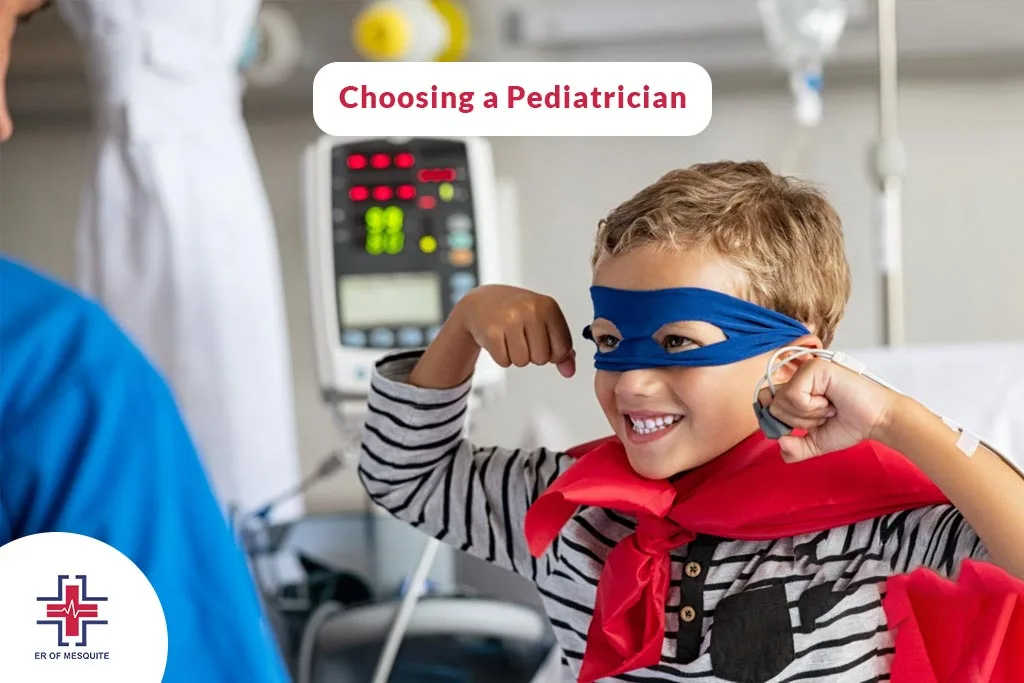Imagine yourself as a convening angel who possesses the skills of a skilled physician, is kind and considerate, and is the one who owns and executes well-being protocols. This guardian angel can calm your worries, provide your child with sound guidance, and increase your self-assurance when taking health classes. This angel of protection would prefer to descend on a pediatrician.
However, those general pediatricians are the same specialists in the construction of the future generations’ health system as they study infancy, childhood, and adolescence. Pediatricians have specialized training and they exercise a compassionate approach during the treatment of children. Their main purpose is to ensure the children’s healthy growth from both physical, psychological, and social perspectives. From that phenomenal first pure and whole breath to the challenge and tears of the teen schema, pediatricians are there through it all; scientific expertise and kind care all blended.
Pediatricians not only do what they do but also bond with people and help parents navigate the maze of pediatric health and development issues by taking a guiding role.
What is a Pediatrician?
A pediatrician is a physician who specializes in the treatment of children from the time they are infants until they reach the age of young adults, which is roughly 18 to 21 years old. This approach stems from the understanding that children are not miniature versions of adults; rather, they have unique physiological, emotional, and developmental needs that can only be met via customized caregiving.

Pediatricians are medical professionals who specialize in treating children of all ages for a range of health issues, including well-child development, illness diagnosis and treatment, and routine check-ups. They are experts in the physical aspects of children, but they can also offer psychological and social guidance.
The road to being a homo pediatrician requires numerous years of study and indoctrination. Doctors, who after medical school need to finish a residency as a pediatrician of three years, are called a residency, which usually lasts three years. The prospectus offers the opportunity to go into the depth of child health factors, including neonatology, developmental and behavioral questions, and surgeries as well.
What Does a Pediatrician Do?
Pediatricians have a real role in life in the neighborhood of the child’s health and development. They also provide broad-gauge care going beyond the acute treatment of diseases. The role of pediatricians is neither simple nor straightforward as they have to cover the physical, emotional, and social phases of infancy and young adulthood, which sometimes includes the complexity of difficult problems.

Physical health and preventive care will be addressed.
Sporting among the main responsibilities of a pediatrician is the management of the child’s physical health. This may include vital health check-ups that are vital in disclosing a child’s health defects, gauging growth, and screening for vaccination to assist in disease prevention. Routine diagnosis and treatment are also undertaken to address common conditions like colds and flu to advanced and chronic conditions like asthma or diabetes. It is Pediatricians who are experts in diagnosing and treating any problems of development from the very moment of birth till their full shot of well-being.
Emotional and Psychological Well-being
Pediatricians examine emotional and psychological components of health in addition to physical ones, even though disease-free living is one of the most important parts of health. They are trained to recognize the signs of mental health issues such as sadness and anxiety, and they can assist if the person requires therapy or to speak with professionals. Children and teenagers can securely discuss their concerns, what upsets them, and how they would like to grow in a doctor’s office. A doctor will listen to them and not pass judgment or criticism.
Social Health and Development
Some pediatricians can hardly overstate on the impact they make by counseling parents and guardians on how to go about their children’s well-being in a more wholesome way. They assist with addressing several social problems that trouble young people including those stem from relationships difficulties with peers and family members as well as problems encountered in schools. Through developing parents’ communication skills and sharing evidence-based counseling, pediatricians assist parents in making it through infancy and childhood in a rather complex world.
How to Become a Pediatrician?
Becoming a pediatrician has always been a career that I have aimed at as it serves my heart to deal with the issue of children’s care. This profession involves numerous educational programs, dedication, and perseverance.

Educational Journey
The path to pediatrics should be supported by a coherent educational agenda, which needs to start with a higher education. This means having an undergraduate degree. Typically, those who are seeking to become pediatricians in the future would undertake a bachelor’s degree in a science-sectioned discipline like biology, chemistry, or physics, but it is not a requisite. The required subjects, on the other hand, are crucial to study at the certificate level for medicine school which usually includes biology, physics, chemistry, and math. In addition to that, undergraduate levels of students should also concentrate on the efforts of having the highest possible GPA and doing volunteerism or medical internships where they interact with children.
Medical School
Following the completion of an undergraduate degree, the next step is medical school, which lasts four years and is split into two phases: The clinical component, where the students learn face-to-face during class and laboratory instruction, and the clinical phase, where the students’ practice medical rotation in different medical specialties. Passing the Medical College Admission Test is the final hurdle in a highly competitive process that grants entrance to medical schools.
Residency in Pediatrics
Then the first step to knowing is a medical degree, followed by a pediatric residency that usually lasts three years. While in residency, doctors acquire more expertise and directly involve themselves in pediatric medicine by working in different medical facilities, while receiving support and guidance from senior pediatricians. This is a critical time for the development of practical skills and forming nascent habits.
Board Certification and Licensure
By the end of the residency, board certification and licensure are what pediatrician keenly possesses. Hence, it requires taking the United States Medical Licensing Examination (USMLE) for M.D.s as well as the Comprehensive Osteopathic Medical Licensing Examination (COMLEX-USA) for D.O.s. Furthermore, to specialize within this category, they can opt for board certification via the American Board of Pediatrics, and this way, they will get the necessary permission after clearing a Being certified entails nonstop education, and reaching its completion demands taking a reexamination after long periods.
Continuous Learning and Specialization
They faithfully stay updated and fully abreast of the latest pediatric practices, techniques, and technologies. Many of these specialists pursue the sub-specialties of pediatric oncology, pediatric cardiology, or neonatology and offer their services to children and families in these various areas. Specialization usually requires board-accredited fellowship post-residency training or completion of certification by a regulatory body. During their careers, pediatricians receive education on varied topics concerning pediatrics inside the continuing medical education forums to be on top of the latest developments in the pediatric healthcare industry.
How Long Does it Take to Become a Pediatrician?
The timeline to become a pediatrician involves:
- 8 semesters of tertiary study.
- 4-year total of medical education.
- Candidates with 3 years of pediatric residency training will be accepted for board certification.

After high school, each of them adds three years, and when combined with the other three, the total is about eleven years. However, if the individual decides to pursue further subspecialty training in fields like pediatric cancer or pediatric interventional cardiology, which may need an extra three to four years of study, this kind of distance training may need to be completed over a longer period.
In short, a pediatrician is defined by their unwavering dedication to the health and happiness of these young people, which comes from a long and difficult path that burns away the biological core. This rewarding career, which is demanding but wonderful, is not only about years spent in school; it’s also about the lives we change and how we help kids grow and develop.
Financial Dimensions of the Professional Background of a Pediatrician
Picking a pediatrician career is a chance for both dignity and ethical conduct and also a financially stable and lucrative career. The financial segment of a pediatrician’s occupation is affected by numerous factors. These factors can include where the physician resides, his or her many years of experience, and the setting of the practice. Let’s shift our focus to the sources of income of pediatricians as well as loans to their earnings.
How Much Does a Pediatrician Make?
Remarkably, pediatrician salaries fluctuate across the industry, with the calculated annual average being a reflection of the field’s diversity and contrast in the costing living conditions in each region. As per the latest stats, the median annual salary for a pediatrician in the USA varies in a range that remains in the competitive scale for medical specialties and it is mostly said that pediatrics is on the lower side of the scale compared to more specialized fields, generally.
Factors Influencing Income:
- Geographical Location: It should be mentioned that highly paid pediatricians live in regions with the highest cost of living and a shortage of medical specialists. Doctors working in regions that have a greater need for pediatric care or in areas with a higher living cost may demand more money too.
- Type of Practice: For instance, pediatric practitioners with their independent practice can easily have higher earnings than a doctor in an academic or hospital setting. This is because the private practitioner can attend to a larger number of patients in a day or offer specialized services which may be sometimes charged more.
- Experience: Job experience comes with a big factor which is that it determines the rate at which somebody gets paid just as many other professions. While senior pediatricians with broad experience and a large following usually earn more than first-year pediatricians, the profit disparity in the two specialties mainly depends on their increase in fees and the actual number of patients.
- Subspecialties: The additional training for pediatricians in neonatology and pediatric cardiology or pediatric oncology helps to grow the earning potential of these specialists by a big amount.
How Much Does a Pediatrician Make an Hour?
The hourly wage of pediatricians should be also the wage of doctors of the diverse nature of the above-mentioned schedules. Others can check children at regular visits performed during long hours and fixed schedules of their outpatient clinics meanwhile those, who provide pediatric consultations to hospitals, may provide care at night and on weekends considering the possible hours of their patients’ admissions.
- Average Hourly Wage: Moreover, pediatricians’ hourly wage ranges a lot, but when it is annualized and calculated using 40 hours per week for a year of regular work, the result is the same salary expectations. These could range from very little effect based on factors such as the availability of financial credit, infrastructure, and technological development to the altered conditions that could be industrious for some and distressing to others.
- Part-Time Work and Locum Tenens Roles: Many pediatricians promise to lean towards spending more time with family and friends for family life, so part-time positions and locum tenens with high hourly rates are really good for them. These roles are likely to offer an hourly wage that is a royalty relative to compensation-free jobs or lack of job security.
Choosing a Pediatrician
Parents must make a significant choice about selecting the right pediatrician; the above medical professional will be the one to take care of their children ‘s health and development from childhood to adolescence. The process involves gathering information on how to select a pediatrician and equipping oneself with the criteria to be taken along to minimize the chances of settling for mediocrity.

How to Find a Pediatrician?
The journey to finding the right pediatrician can start with several resources designed to help parents navigate through the options:
- Referrals: Seek advice from relatives, friends, or your gynecologist on clinics where you feel welcome. Buy our service to make sure you The personal experience may be worthwhile in defining a pediatrician’s communication skills and psychological states.
- Medical Boards and Professional Organizations: Amidst those, the websites of member boards of pediatric profession or organizations, including the American Academy of Pediatrics, are listed to help locate pediatricians with the certification. In this context, such resources will not only give you the necessary information concerning a pediatrician’s medical school but also give you medical training and specialty or certifications.
- Online Directories and Reviews: To find a suitable doctor for your kids, use online referral, thereby, verifying the opinion of other parents. It is also common to find these platforms with patient reviews. These reviews may be patients’ nuanced thoughts about the doctor’s way of caring and their satisfaction with the care they receive.
- Hospital Affiliations: For instance, the pediatricians associated with well-known hospitals are the one crucial thing to know. Sometimes you can find a website addressing this because the hospital builds a list of affiliated pediatricians that are covered with their credentials and specialties as well.
- Insurance Provider Directories: Call an insurance officer to get a list of possible pediatricians that take up your insurance, thus when having a visit, you will not be priced.
How Do Choose a Pediatrician?
- Credentials and Experience: The major point to do is to check about pediatrician board certification which means that they have passed the test with high standards and they are qualified for pediatric care. Pay their attention, in particular, to their expertise. They very well may have some specific medical problems.
- Compatibility and Communication Style: Choose a pediatrician whose style of communication corresponds with your beliefs. It’s crucial that you feel well with having a fair and open way to communicate with the pediatrician and that he/she listens to you and responds in a way that will be satisfactory.
- Office Environment and Staff: Examine the office setup of the pediatrician’s office and the staff. Think about the time and ease of making appointments, the cleanliness and comfort of the office, and so on.
- Location and Office Hours: About the place and time of the pediatrician’s office, the professional’s advice is important. When you are very close to home, work, or your kid’s school, this can be also one of the reasons. You also need after-hours availability for urgent issues or emergencies.
- Philosophy on Healthcare: See that your doctor’s healthcare philosophy matches yours, especially on issues where you have a strong stance like vaccination, antibiotic use, or alternative medicine. Escalation of such problems can be evaded with these concerns; thus, favorable bilateral ties can be thought of as a sine qua non.
Picking a pediatrician entails arranging your thoughts through these mentioned conditions to make certain that your child is taken care of properly according to what they require. After all, going through research and evaluation provides insights that make it easy for you to have a good relationship with a pediatrician and such a relationship can play a key role in the health and well-being of your child.
Conclusion:
In the end, to picking the right pediatrician for your child is a profound journey that encompasses multiple essential features: qualifications, harmony, and individual healthcare needs of your child. A consultant for pediatricians has a prominent role in ensuring the well-being and health development of the children, starting with the first year of life through the teen years. This decision is, therefore, of great significance.
Having a pediatric unit (separate child care space) and a dependable ER of Mesquite means that, for a Mesquite family, a childcare facility will always be available when needed or necessary. The community’s ability to nurture healthy and content children may be aided by the cooperation of emergency room physicians and pediatricians as well as the establishment of a foundation for nurses.
FAQs
1. Can pediatrics meet the less usual medical requirements of children?
They certainly do, as they are trained to handle children with various special needs in their early years, for instance, children with different developmental, mental, and emotional disabilities. A lot of physicians from the field of pediatrics therefore collaborate with experts to provide holistic treatment that is adjusted to meet the unique needs of every little one.
2. What can I bring to my child’s first competence of a child visit?
During your child’s first visit bring their medical records which include a list of medicines, a record of vaccination, and information about their birth and developmental milestones for reference. Furthermore, gather a list of questions or suspected problems relating to the health and growth of your child as well.
3. How much seeing a pediatrician recommended to my baby?
The number of visits to a pediatrician depends on whether the children are infants or older and whether they are all healthy. Babies and small children primarily visit pediatricians every month or so when immunizations and development monitoring are required. As children progress and gain weight over the years, it is suggested that they have an annual check-up that will allow for the supervision of their health and development.
4. What type of physician is a family doctor and what kind of physician is a pediatrician?
Both services provide care for minors but pediatricians treat from birth right to adolescence and have expert knowledge and training on diseases of young kids. Whether it is children, teens, or adults, family doctors are ready to offer a wide range of healthcare services to any individual and the whole family.
5. How early should my child begin the process of switching from a physician who treats children to an adult doctor?
The shift from a pediatrician to an adult healthcare provider tends to happen in the age range of 18 or around 21. Although in every case an individual health condition plays a particular role, the child’s readiness for this step, and his(her) wish, the doctor may be against the idea.
